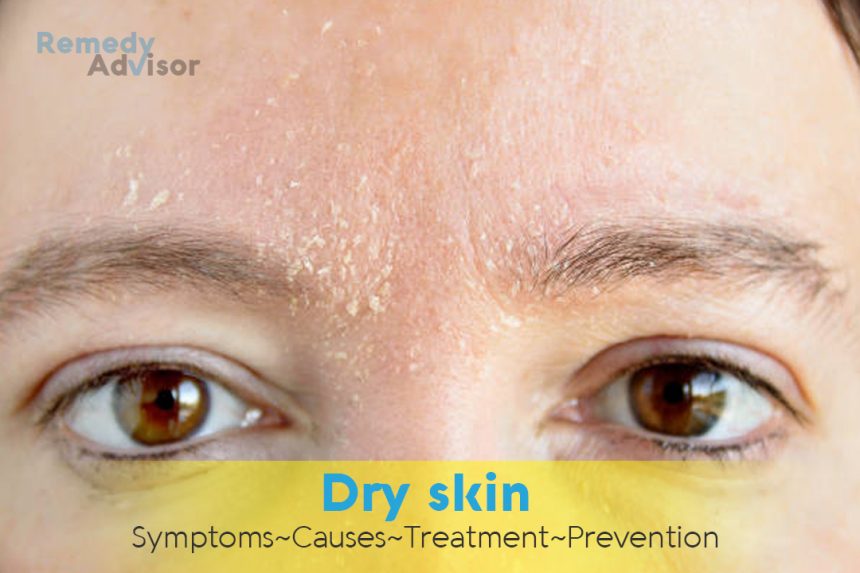What is it
Itching, scaling, cracking, flaking, and chapping are the chief signs and consequences of dry skin. Dry skin is an annoying problem for elderly people, who have lost much of the natural moisture and oil from their skin. For people of all ages, dryness is aggravated by winter weather, when outdoor chill and particularly indoor heat become the enemies of the epidermis. Common sites of dry skin include the lower legs, thighs, and upper arms. Cold weather can also cause nails to break and cuticles to roughen.
Wool or synthetic fabric next to the skin can make a person itch. So, can perspiration or frequent swimming. If you have this kind of dry, itchy skin, you may suffer from xerotic or asteatotic eczema (eczema being a general name for skin inflammation).
Symptoms
- Skin that appears dry, scaly, brittle, rough.
- Itching (moderate to severe cases).
What causes it
Throughout much of life, secretions from oil and sweat glands help to moisten the skin and prevent dryness. As you age, however, natural secretions decrease and the skin gradually dries out. Also contributing to the problem is the fact that skin sags more (because the fat just under the skin diminishes) and it loses elasticity because of changes in connective tissue. In addition, cold weather, dry air, harsh skin-care products, and too-frequent bathing contribute to the overall drying effect.
What if You do nothing
In most cases dry skin will eventually clear on its own once the humidity increases. However, the unsightly appearance and accompanying itching may be too much to bear until that time finally arrives.
Home remedies
There are effective and inexpensive ways to take care of dry skin.
Take short baths or showers and use lukewarm water
Cut bathing back to two or three times a week during the cold winter months. Sponge bathe the rest of the time. Overbathing in a tub may cause damage to skin cell membranes, possibly by removing essential body oils. If you take tub baths, add bath oil, cornstarch, or instant or colloidal (finely ground) oatmeal to the water to help soothe the skin.
Discontinue deodorant soaps if you use them
Choose a milder soap and use as little of it as you can.
Pat yourself dry instead of rubbing
Gentle patting is less irritating than vigorous rubbing.
Moisturize
Apply a moisturizing oil or lotion, especially after a bath or shower Avoid products that contain rubbing alcohol.
Be sure clothing that touches your skin is washed properly
Try switching to a detergent that contains no perfume. Discontinue fabric softeners, bleaches, and other wash ingredients. (You may be able to return to your regular washing routine later.)
Wear cotton
It’s easier on your skin compared with wool or synthetics, whose rough texture tends to catch and move the skin scales, leading to a vicious cycle of itching and scratching. Permanent press as well as wrinkle-resistant cloths consists of formaldehyde as well as other irritating chemicals in their finish. Wash new clothing and towels just before using them.
Try not to scratch
You may irritate the skin further If symptoms persist, apply a hydrocortisone cream to your skin. Don’t use alcohol-based products, which are drying, to combat itching.
Prevention
Keep the indoor temperature at 68°F in the winter
This saves fuel as well as skin by increasing the relative humidity. If this isn’t possible, use a humidifier to raise humidity and slow dehydration.
Avoid toasting yourself in front of a fire or woodstove
Wood heat because it is so hot if you’re near enough to get really warm is extremely drying.
Stay out of direct sunlight as much as possible
Too much sun causes dryness, and it is the leading cause of skin cancer. Use facial moisturizers that contain sun-blocking agents.
Use a moisturizer after bathing
Moisturizing ingredients trap moisture and change the surface of the skin.
Avoid air conditioning whenever possible
Going from a humid environment into an air-conditioned room where the relative humidity is low causes water to be lost from your skin.
Use liquid soap whenever possible
Liquid soaps are milder than most soap bars.







